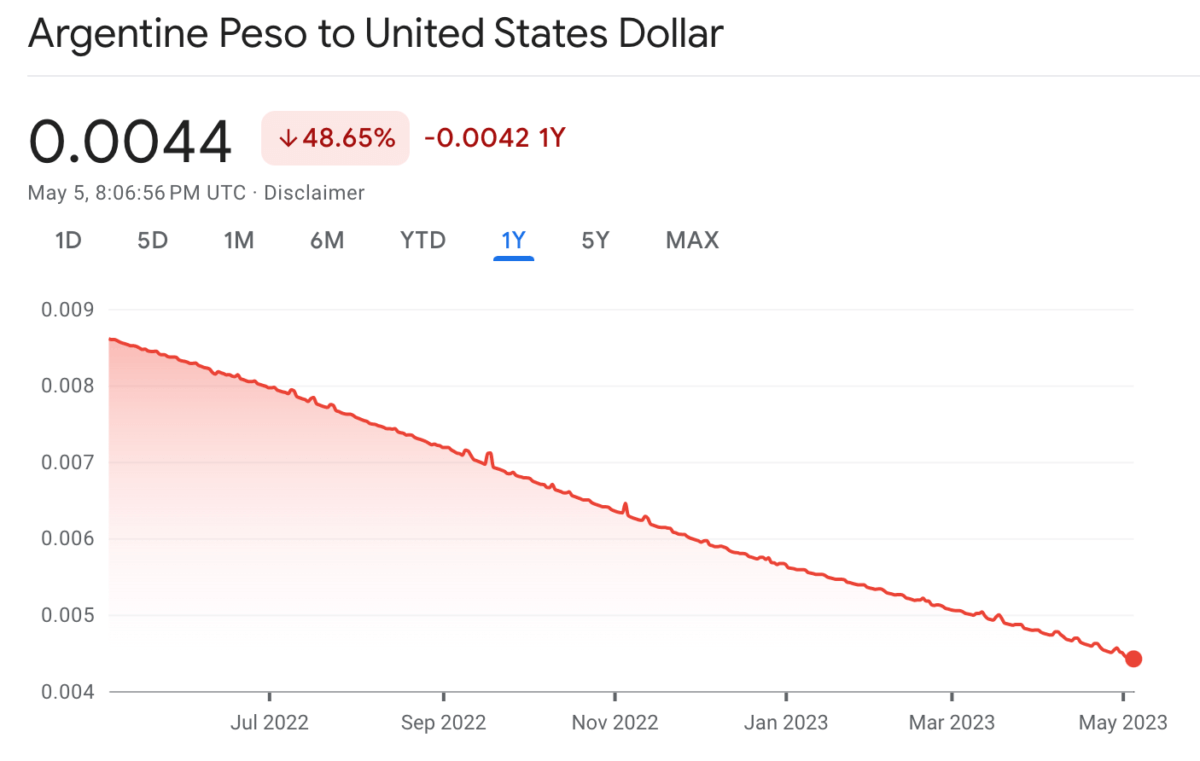In a significant move, Argentina’s central bank has announced that it will be halting the use of cryptocurrencies for payments through payment apps. The decision was made due to concerns about the risks associated with virtual assets and their potential impact on the country’s financial stability.
The Argentina central bank issued a statement on Thursday, May 4th, stating that it had instructed payment providers to suspend the inclusion of cryptocurrencies such as Bitcoin and Ethereum in their platforms. The decision applies to all payment and electronic money transfer providers operating in Argentina, including Mercado Pago, a leading payment app in the country.
Argentina Shuts Down Bitcoin Services Offered by Payment Apps
Argentina’s central bank prohibited payment providers from offering crypto transactions on May 4, citing a desire to reduce the payment system’s exposure to digital assets.
According to a statement issued by the monetary authority, payment providers are not permitted to offer or facilitate crypto services via their applications. This action combines payment fintech and financial institutions in the country under the same regulations. Cryptocurrencies are not regulated in Argentina, which means all coins and tokens are subject to the decision.
Payment service providers that offer payment accounts […] may not carry out or facilitate operations with digital assets, including crypto assets, that are not regulated by the competent national authority and authorized by the Central Bank of the Argentine Republic.
Argentinian Authorities
The measure’s impact on the local crypto business is unknown. Payment providers, according to local media, refused to comment on the decision. Argentina’s fintech chamber requested the government to reconsider the decision, arguing that “it limits access to a technology that offers multiple benefits and opportunities for our society.”
In the announcement, the bank did not elaborate on the reason other than to safeguard customers. It now means that key platforms, including Mercado Libre, the Amazon of Latin America, will no longer be able to offer Bitcoin purchasing services to Argentinians.
What’s the impact on the Argentine economy?
Argentina, the third largest economy in Latin America, suffers from one of the worst inflation rates in the world, which surpassed 100 percent for the first time in three decades last month.
A number of crypto startups in the country, as well as a prominent presidential candidate, have advocated Bitcoin as a savior for ordinary Argentinians who cannot save or are being pushed into destitution due to the collapse of the peso.
Although cryptocurrencies are unregulated in the South American country, their popularity is growing. Argentina is one of the fastest-growing cryptocurrency markets, according to Chainalysis, which ranked it thirteenth on its 2022 Global Crypto Adoption Index last year.
Argentina’s capital, Buenos Aires, hosted the 2018 LaBitConf conference, where a number of prominent cryptocurrency individuals, including MicroStrategy CEO Michael Saylor and Ethereum co-founder Vitalik Buterin, spoke about the country’s expanding position in the crypto ecosystem.
In Argentina, hyperinflation is propelling crypto adoption. In April, the price of Bitcoin in Argentine peso (ARS) reached a record high, with the BTC exchange rate surpassing 6.59 million ARS — an increase of more than 100% year-to-date.
The annual rate of inflation in the country increased by 104.3% in March, following an increase of 102.5% in February, according to data from the national statistics office.

In the midst of the ongoing economic crisis, even some localities in Argentina are seeking refuge in cryptocurrencies. The Argentine province of San Luis issued its own stablecoin pegged to the U.S. dollar, available to all residents and fully collateralized with liquid financial assets, in December 2017.
According to reports, the rising prevalence of Bitcoin in Argentina coincides with the ongoing devaluation of the local currency. In the past year, the currency has lost nearly 50 percent of its value against the United States dollar.
